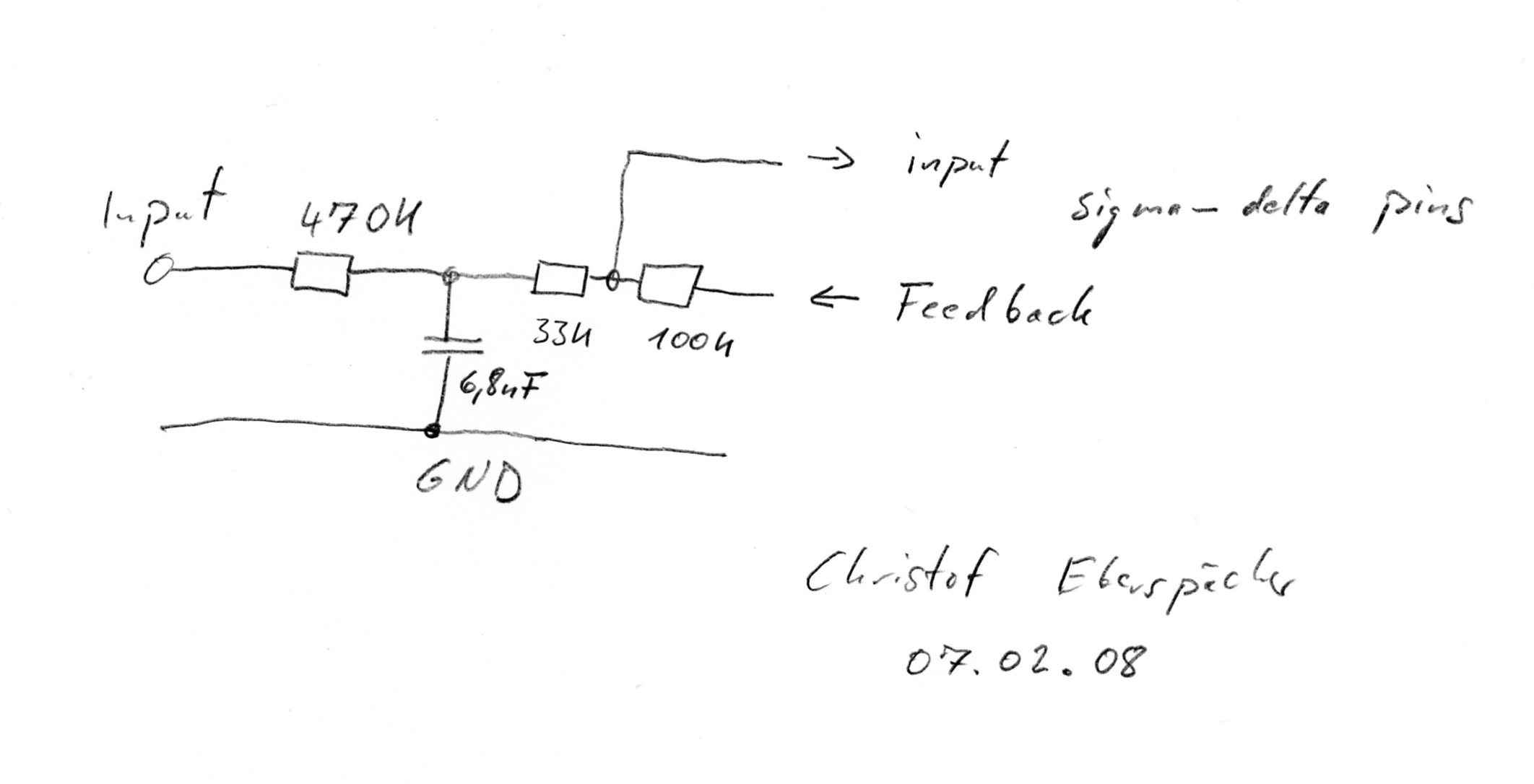Who wants to try this experiment? - Great and simple improvement for sigma delt
Hi,
this might be an interesting „invention“, if someone could reproduce it….
The sigma delta adc method, which is described in the “AN001 – Propeller Counters” document uses very simple hardware -2 resistors and one or two capacitors- but is not recommended to be used with breadboards. If it is used there, it produces a lot of noise.
In former experiments I had found, that the noise seemed to come from the time, where the input is in a nondefined state between low and high. This lead to the idea to introduce a third resistor. Have a look to the circuit. The input will be pulled towards the output voltage and out of the nondefined range.
The software is completely the same as before. My program outputs average, standard deviation, minimum and maximum to evaluate a possible improvement.
In my experiments there is a really great improvement!
If the 3.3 Voltage is measured, 12 bit (4096 counts):
Reading the input at the capacitor gives average 3773 bit counts and standard deviation about 55 counts.
Reading between the 33k and 100k gives average 3229 bit counts and standard deviation 1 count.
Does anyone want to try this experiment? – I would be interested in feedback.
What are the disadvantages?
Christof
this might be an interesting „invention“, if someone could reproduce it….
The sigma delta adc method, which is described in the “AN001 – Propeller Counters” document uses very simple hardware -2 resistors and one or two capacitors- but is not recommended to be used with breadboards. If it is used there, it produces a lot of noise.
In former experiments I had found, that the noise seemed to come from the time, where the input is in a nondefined state between low and high. This lead to the idea to introduce a third resistor. Have a look to the circuit. The input will be pulled towards the output voltage and out of the nondefined range.
The software is completely the same as before. My program outputs average, standard deviation, minimum and maximum to evaluate a possible improvement.
In my experiments there is a really great improvement!
If the 3.3 Voltage is measured, 12 bit (4096 counts):
Reading the input at the capacitor gives average 3773 bit counts and standard deviation about 55 counts.
Reading between the 33k and 100k gives average 3229 bit counts and standard deviation 1 count.
Does anyone want to try this experiment? – I would be interested in feedback.
What are the disadvantages?
Christof
spin

13K



Comments
It is not easy to evalute the trade-offs...
I think a reduction of the feedback frequency should have a similar effect
PhiPi had something similar a few weeks ago.
That's a good find well done..
We did something similar with the SX chip and its analog inputs..
We were able to set a Hysteresis on toggling between on/off which proved
good enough for simple monitoring of a voltage on a battery..
cheers ron mel oz